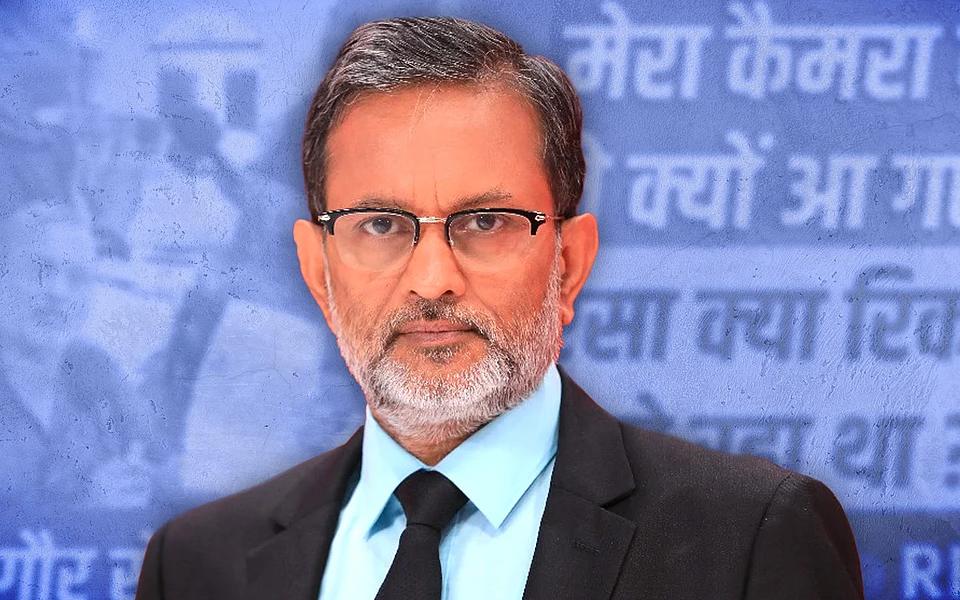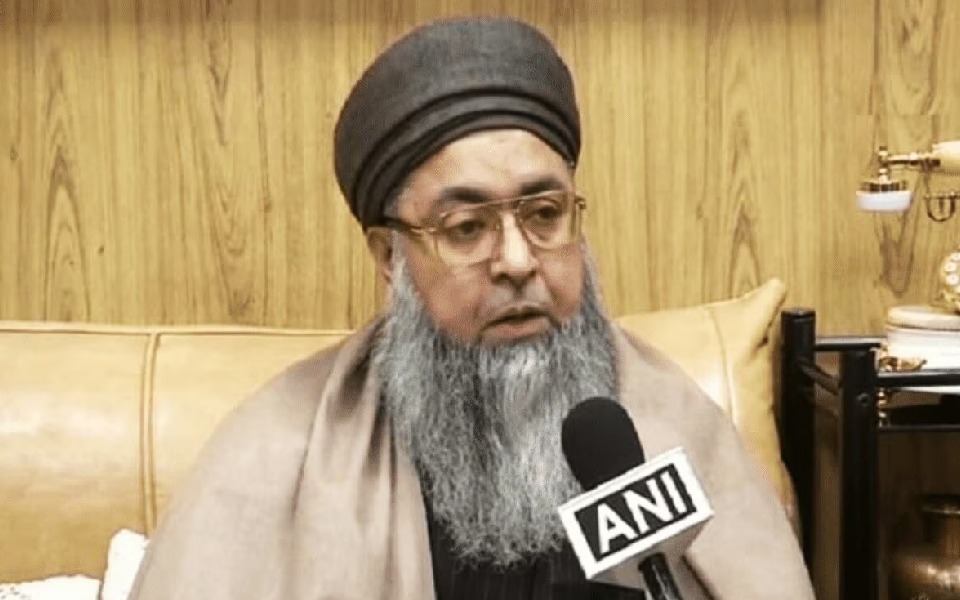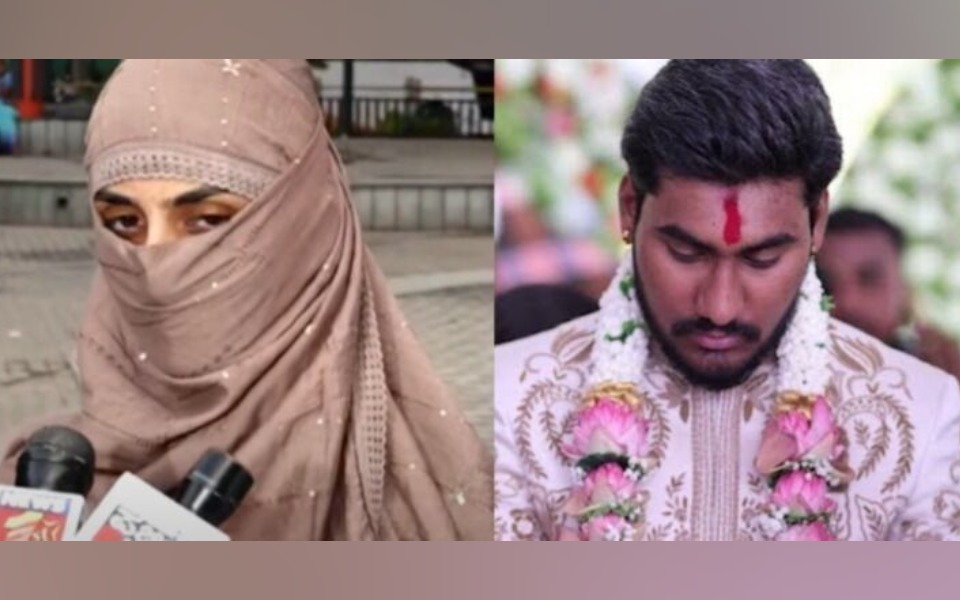An FIR has been registered against independent journalist Ajit Anjum in Bihar’s Begusarai district for allegedly spreading misinformation about the voter roll revision exercise in Bihar.
In a video on his YouTube channel on July 12, Anjum alleged large-scale irregularities in the voter list in the Sahebpur Kamal assembly constituency. The district administration, in a statement, dismissed these claims as “baseless”, “misleading”, and intended to “incite public sentiment”.
साहेबपूर कमाल विधान सभा क्षेत्र ( बलिया अनुमंडल, बेगूसराय) मे चल रहे SIR कार्यो के आलोक में एक Youtube Handle द्वारा फैलाए जा रहे भ्रामक ख़बरों के खंडन के संबंध में जारी प्रेस विज्ञप्ति। @IPRDBihar@ECISVEEP@CEOBihar #begusarai pic.twitter.com/E74tHQIui7
— जिला प्रशासन बेगूसराय (@DM_Begusarai) July 13, 2025
The FIR was registered on July 13 at the Balia police station based on a complaint by booth-level officer Mohammad Ansarulhaq. The complaint alleged that Ajit Anjum and his colleagues met him while he was uploading data using the BLO app and began asking questions about Muslim voters in the area. “Anjum’s focus was on the claim that the Muslim voter is being harassed which is absolutely false.”
The Begusarai SP confirmed the registration of the FIR.
Referring to the Election Commission’s guidelines, the Bihar administration claimed that the entire process was being carried out transparently.
बेगूसराय के एक BLO पर दबाव बनाकर मुझ पर FIR की गई है .
— Ajit Anjum (@ajitanjum) July 14, 2025
इस वीडियो को देखिए और तय कीजिए कि मैंने उस मुस्लिम BLO से क्या ऐसी बात की है , जिससे सांप्रदायिक सद्भाव खराब होता है .
और कुछ नहीं मिला तो ये रास्ता निकाला. एक मुस्लिम BLO को मोहरा बनाकर मेरे खिलाफ इस्तेमाल किया गया . वीडियो…
Responding to the FIR, Ajit Anjum posted on X that a “Muslim BLO is being used as a scapegoat against me”.
“An FIR has been filed against me in Begusarai by pressuring a BLO. Watch the video and decide for yourself if I said anything to that Muslim BLO that could possibly disturb communal harmony. When they couldn’t find anything else, they chose this route. A Muslim BLO is being used as a scapegoat against me. Instead of answering the questions raised in the video, the administration is resorting to intimidation. Let me just say this – I am still in Begusarai. And if needed, I will take this fight all the way to the Supreme Court. I will not be afraid.”
The video published on the YouTube channel is essentially a ground report investigating the Special Intensive Revision campaign underway in the Balia block. It shows how a large number of voter forms are being filled and uploaded without the required documents or photographs.
The report features direct conversations with the BLO and supervisor in Balia, suggesting that many forms are incomplete, some even missing names, signatures, or any form of identity proof.
The video also states that over 80 percent of people from “Muslim-majority” booths have submitted forms with proper documentation. Additionally, the BLO is seen clarifying that claims about Bangladeshis or Rohingyas being listed as voters are completely false. In doing so, the report questions several claims made by the Election Commission and raises serious concerns about the transparency of the voter list revision process.
Let the Truth be known. If you read VB and like VB, please be a VB Supporter and Help us deliver the Truth to one and all.
New Delhi: In a rare and widely discussed outreach, Rashtriya Swayamsevak Sangh (RSS) chief Mohan Bhagwat met over 50 Muslim religious leaders and scholars at Haryana Bhawan in New Delhi on Thursday. The three-and-a-half-hour meeting was hosted by Umer Ahmed Ilyasi, the Chief of the All-India Imam Organisation, and is being described by some as an effort to build bridges between India’s majority and minority communities.
But Ilyasi, who facilitated this high-profile interaction, is no stranger to public attention—or controversy. His political and religious statements over the years have drawn criticism from several quarters within the Muslim community, prompting fatwas, threats, and frequent allegations of pandering to majoritarian narratives.
The meeting with Bhagwat, which included representatives from Deoband Madrasa, the Chief Imams of Gujarat and Haryana, and the Grand Muftis of multiple states, was framed as a trust-building initiative. “We may follow different faiths, but we are all Indians,” Ilyasi told IANS, describing the dialogue as a platform to promote national unity and social cohesion.
However, many observers have noted that this is not the first time Ilyasi has aligned himself with positions that are seen as diverging sharply from mainstream Muslim sentiments.
Statements That Stirred Reactions
In 2017, speaking to reporters in Indore, Ilyasi called for a nationwide ban on cow slaughter and demanded that the cow be declared a national animal. While he also condemned mob lynchings related to beef consumption suspicions, his support for a uniform cow protection law was received critically within sections of the Muslim community, where beef consumption remains culturally and religiously permissible.
His support for the ban on mosque loudspeakers during a 2022 interview with ANI was another instance that did not sit well with several Muslim clerics and organisations. Around the same period, he controversially linked the Karnataka hijab row to interference from “foreign bodies and terror groups like Al-Qaeda,” saying such events were attempts to “malign the country.”
In March 2025, on the occasion of Eid-ul-Fitr, Ilyasi released a video urging Muslims not to offer prayers on public roads, calling instead for discipline and restraint in religious observances. While the appeal may appear practical to some, others saw it as aligning with growing pressure from right-wing groups who object to public prayers by Muslims.
The backlash against Ilyasi’s public statements has been strong and visible. In January 2024, after his visit to the Ram Mandir ceremony in Ayodhya, a group of muftis issued a fatwa against him, branding him a ‘kaafir’ (infidel) and demanding an apology. Ilyasi dismissed the criticism, stating bluntly that India is not an Islamic state and Sharia law does not apply here.
His earlier praise for Mohan Bhagwat in September 2022, calling the RSS chief the “Rashtra Pita” (father of the nation) and “Rashtra Rishi” (national sage), had sparked severe backlash and even death threats. Multiple reports confirm he received “Sar Tan Se Juda” (beheading) threats from within the Muslim community. Despite these, Ilyasi stood firm, publicly saying that those who could not tolerate his stand “should perhaps go to Pakistan.”
While Ilyasi holds the position of Chief Imam of the All India Imam Organisation, critics point out that the organisation is not widely representative of India’s diverse and decentralised Muslim religious leadership. Many prominent Muslim groups, including those from Deoband and Barelvi backgrounds, have either distanced themselves from his remarks or remained silent on his engagements.
He has also made headlines in the past with statements that left many confused. In one interview, he controversially claimed that Muslims are descendants of Lord Krishna, a remark that drew sharp reactions across religious lines and lacked theological grounding.
The recent meeting with the RSS, timed with the Sangh Parivar’s centenary celebrations and the 50th year of Ilyasi’s organisation, signals a broader strategy at play. While the optics may suggest communal harmony, critics say such outreach efforts often come with political subtext, especially when facilitated by figures with a record of leaning into government-aligned narratives.
During the Thursday meeting, according to sources, no specific issues such as the Gyanvapi case or hijab row were discussed. Instead, themes like national integration, social unity, and ongoing dialogue between communities were explored. Ilyasi later stressed that the meeting was not a conclusion, but a beginning of sustained engagement.
In the current climate of increasing religious polarization, the role of clerics like Umer Ahmed Ilyasi is bound to provoke debate. For some, he remains a divisive figure, whose positions do not reflect the broader concerns of Indian Muslims.





